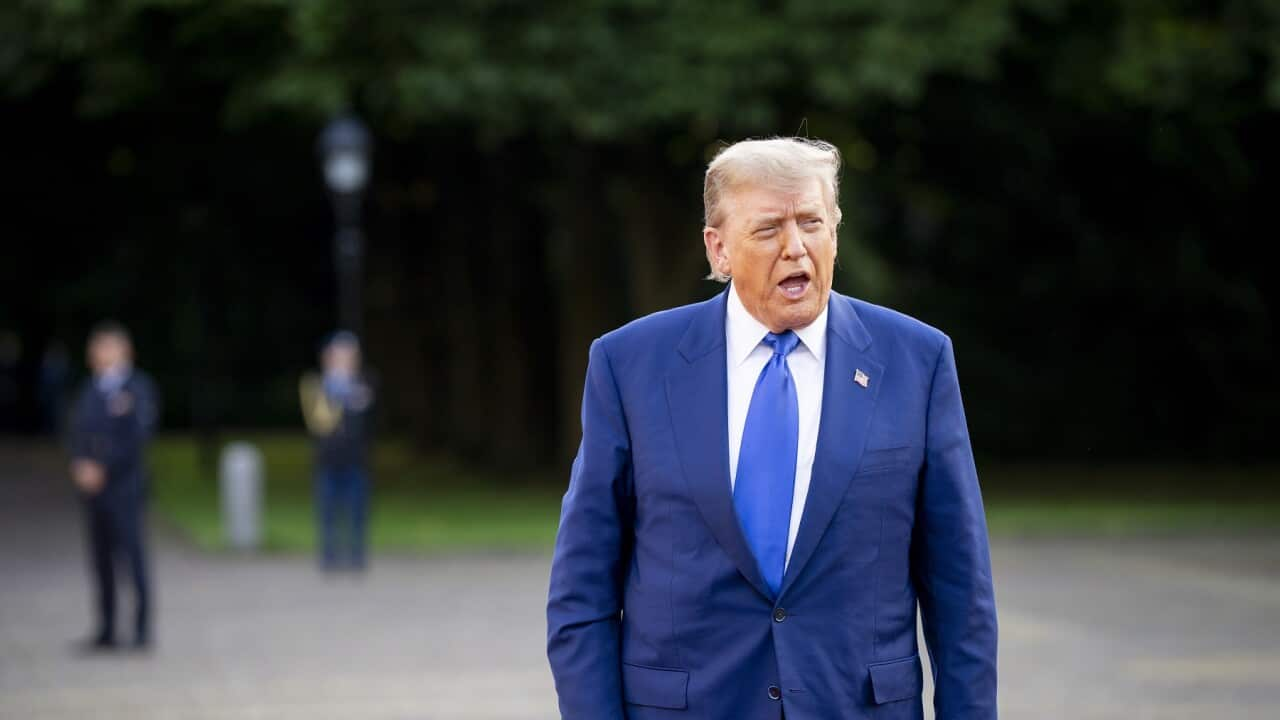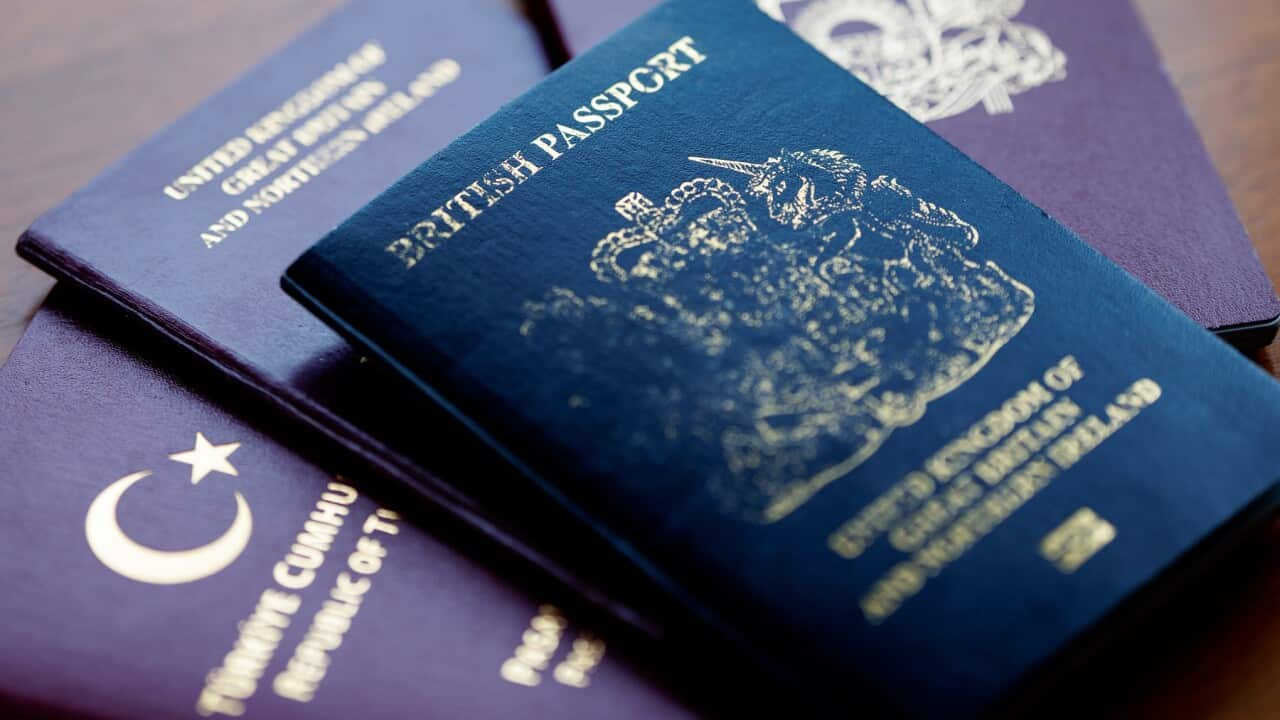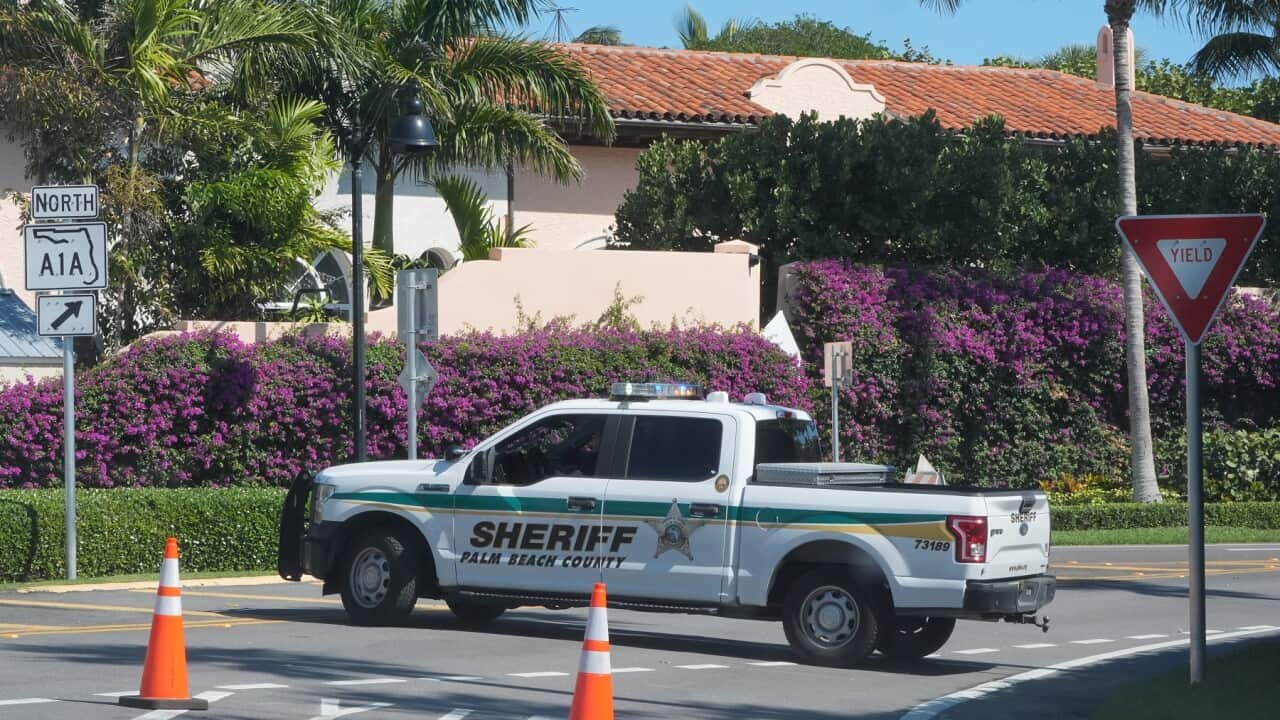Listen to Australian and world news, and follow trending topics with SBS News Podcasts.
TRANSCRIPT
The guns have fallen silent, at least for now, in one of the most volatile confrontations the Middle East has seen in decades.
A US-brokered ceasefire between Iran and Israel is holding, despite accusations, denials, and competing declarations of victory.
After nearly two weeks of airstrikes, cyber assaults and missile exchanges, both nations insist they’ve emerged stronger, with Israeli Prime Minister Benjamin Netanyahu declaring Iran’s nuclear program destroyed.
"We brought to ruin Iran's nuclear program. And if anyone in Iran tries to revive this project, we will act with the same determination and the same strength to put an end to any such attempt. I repeat, Iran will not have nuclear weapons."
He credited the United States, and specifically President Donald Trump, for supporting Israel.
"The participation of the United States in the operation, not only on the defensive side but also on the offensive side, this is a historic event the likes of which has never happened before."
Meanwhile, crowds rallied in Tehran, chanting slogans and waving placards reading Death to Israel and Death to America, even as state media promoted the ceasefire as a strategic success.
But the ceasefire agreement, fragile from the outset, teetered within hours.
Explosions were heard in northern Israel early Tuesday, and air raid sirens blared across Haifa and Beersheba.
Speaking to reporters before heading to a NATO summit in the Netherlands, President Trump expressed rare public frustration with Israel, his closest ally.
"They (Iran) violated it, but Israel violated it too. Israel, as soon as we made the deal, they came out and they dropped a load of bombs, the likes of which I've never seen before, the biggest load that we've seen. I'm not happy with Israel. You know when I say, Okay, now you have 12 hours. You don't go out in the first hour. Just drop everything you have on them. So I'm not happy with them. I'm not happy with Iran either, but I'm really unhappy if Israel's going out this morning because of one rocket that didn't land, that was shot, perhaps by mistake, that didn't land. I'm not happy about that."
He later added, in language unusually blunt for diplomatic circles:
"Basically we have two countries that have been fighting so long and so hard that they don't know what the f**k they are doing. Do you understand that?"
Despite his fury, President Trump insisted he does not seek regime change in Iran.
Iran's ambassador to Australia, Ahmad Sadeghi tells SBS News that any such move would be a calamity.
"Disastrous reaction. I don't want to even talk about it. I do not want to even consider it that they dare to do that, first of all. And then after these developments that you consider inside Iran just further united their solidarity with each other."
Iranian officials have firmly denied firing any missiles after the ceasefire came into effect.
Spokesman for the Iranian Revolutionary Guard Corps, Lieutenant Colonel Ebrahim Zolfaghari, says it was Israel that had violated the truce.
“This aggressive regime has violated the country’s airspace using drones and, from this morning until now, has targeted and attacked certain areas of the country.”
He is warning of further retaliation if provocations continue.
“We warn America and the Zionist regime of the crushing blows of the brave Islamic fighters — from the north to the south of the occupied territories — and of the strike on the American base in Al Udeid, which should serve as a lesson. Otherwise, in the next phase, they will face an even more powerful response, with broader targets already designated.”
Israel has not confirmed any such drone activity but maintains its right to respond to perceived threats.
Meanwhile, at least 113 Australians were among those successfully evacuated from Israel.
This comes as the United States' UN Security Council Ambassador Dorothy Shea insisted the weekend’s strikes had degraded Iran’s capacity to produce a nuclear weapon, and were carried out in line with the UN Charter’s principle of self-defence.
"These strikes, in accordance with the inherent right to self-defence, collective self-defence consistent with the UN Charter, aimed to mitigate the threat posed by Iran to Israel, the region, and to more broadly, international peace and security."
Israel’s envoy backed claims that Iran’s nuclear programme was hit, but said it was too early to assess the damage.
President Trump however insists US strikes had obliterated Iran’s facilities, but a leaked Pentagon assessment found only limited impact, likely delaying the programme by less than six months.
The report said key infrastructure and uranium stockpiles remained intact, having been moved before the strikes.
The White House dismissed the findings as flat-out wrong.
Meanwhile, Israeli President Isaac Herzog defended the strikes during a visit to Beersheba, where four civilians were killed by an Iranian missile.
"What we have done successfully in this operation is to remove the Iranian nuclear threat looming above Israel, the region and the free world. In this respect, I commend the Israeli leadership, Prime Minister Netanyahu, the cabinet and, of course, the Israeli military. I commend and thank wholeheartedly President Donald Trump, and of course the US Air Force, and I commend all those who've been involved in this operation."
But not everyone sees it that way.
In Tehran, some residents expressed weariness and scepticism.
One woman said she hadn't slept properly for twelve nights, and hoped the ceasefire would hold.
Others viewed it as a temporary pause in a longer struggle.
The ceasefire may be in effect, cut with mutual distrust and competing claims of victory, the conflict between Israel and Iran remains dangerously unresolved.













